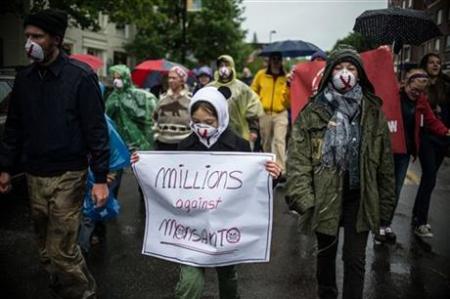If you were looking for the latest news on genetically modified seeds, Monsanto did not disappoint this week.
First of all, The Daily Show decided that their target audience might enjoy a little Monsanto enlightenment, which you can find here. Aasif Mandvi learns that greedy farmers have threatened the livelihood of Monsanto’s heroic patent attorneys.
Then there was the quiet passing of an extension to the “The Monsanto Protection Act” last Tuesday, as part of a budget rider that:
“shields biotech behemoths like Monsanto, Cargill and others from the threat of lawsuits and bars federal courts from intervening to force an end to the sale of a GMO (genetically-modified organism) even if the genetically-engineered product causes damaging health effects.”
Next there was the acknowledgement by Washington State agriculture officials that traits of low level genetically modified seeds were found in a farmer’s alfalfa crop, preventing him from exporting his crop. Of note is that if traces of genetically modified plants are found in farmer’s (non GM) fields from contamination, Monsanto sues the farmer for all he’s got. But when such contamination stops a farmer from selling his crop, Monsanto brings up the “conspiracy theory” argument that somebody else was responsible.
And lastly it’s of interest that Monsanto contributed $4.6M to defeat passage of a genetically modified labeling bill in Washington State, making the total dollar contributions against passage 3 times greater than contributions for passage of such a bill.
It seems that a lot of folks in the US are starting to take the threat of genetically modified crops seriously.










